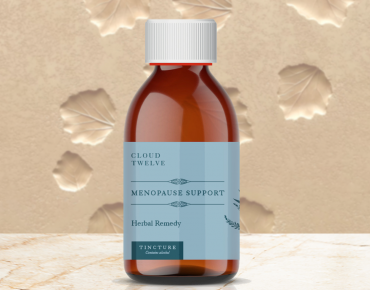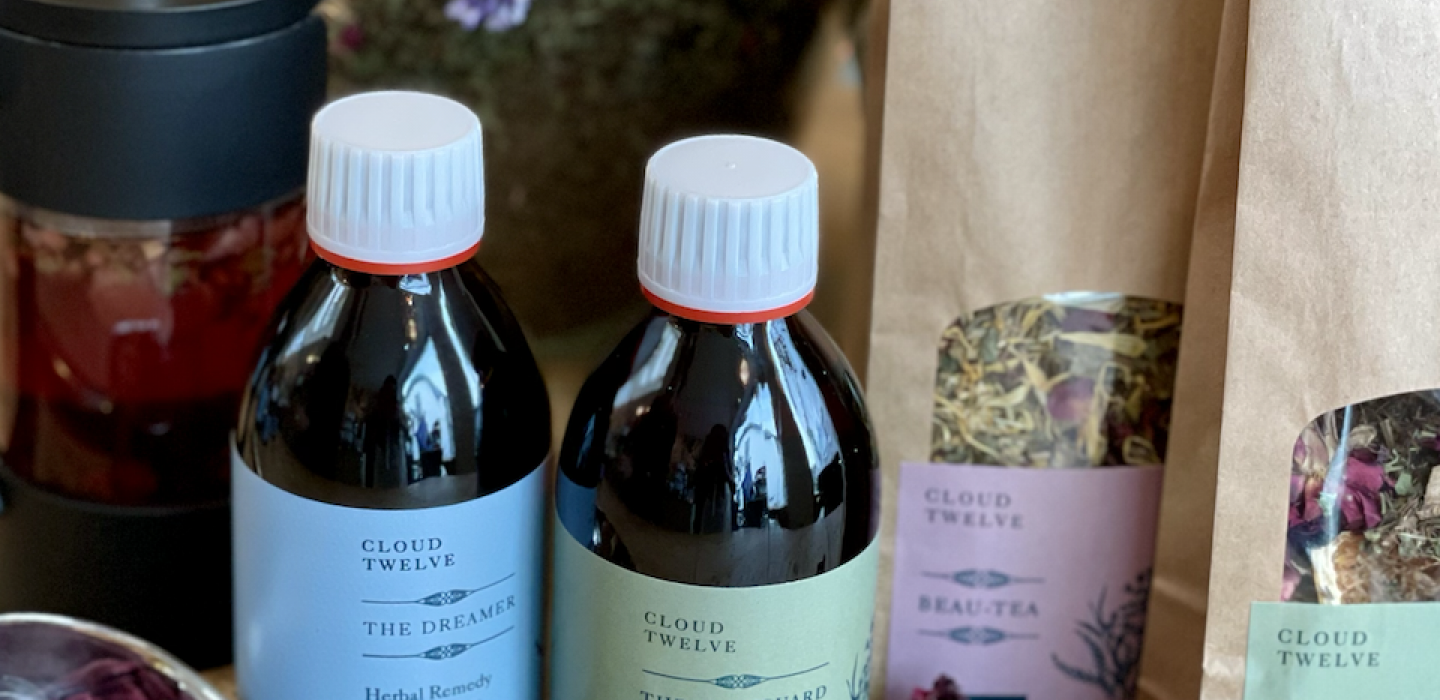Menopause Support Tincture
 Discover more
Discover more

"So many women I've talked to see menopause as an ending. But I've discovered this is your moment to reinvent yourself after years of focusing on the needs of everyone else. It's your opportunity to get clear about what matters to you and then to pursue that with all of your energy, time and talent." — Oprah Winfrey
Transitioning through to menopause can be a challenging time. Whilst it can feel scary, know that you’re not alone. There are a myriad of natural support solutions available that can help you to manage difficult symptoms, and turn this time into an exciting, bracing and health-enhancing journey.
A combination of a healthy diet and lifestyle, herbs, supplements and holistic health treatments, can naturally reduce the severity of symptoms during the menopause and enhance your overall health and wellbeing. It is important to assess your individual needs and develop a tailored plan to provide you with the best outcome.
Many women going through menopause may experience hot flushes, hair loss, vaginal dryness, low mood, weight gain, brain fog, anxiety and difficulties with sleep, to name a few. Moreover, menopause can have an effect on bone density, cognitive ability and cardiovascular health.
Hormone Therapy
Hormone therapy has been the primary treatment for menopausal symptoms. However, because of the health risks associated with hormone therapy, many women cannot or choose not to use hormone therapy. Approximately 51% of women use natural medicine and more than 60% perceive it be effective for menopausal symptoms. 1
There is a lot natural medicine can do to reduce symptoms of menopause. From mind-body practices (hypnosis, CBT, relaxation, biofeedback, meditation, aromatherapy), to natural products (herbs, vitamins, minerals, dietary supplements), and whole-system approaches (traditional Chinese medicine, reflexology, acupuncture, homeopathy).
As a herbalist, I’d like to start with botanical options. There are herbal categories that can be effective for various types of symptoms and imbalances.
Hot Flashes
Hot flashes are one of the most uncomfortable symptoms of menopause.
Sudden rushes of heat and sweating are often accompanied by increased heart rate, chills, shivering, clamminess, anxiety, feelings of nausea, a “head-ache”-like sensation, visible reddening and blotching of the face and neck, an increase in core body temperature, increased metabolism, and interrupted sleep. Women report a minimum of seven hot flashes per day, or at least 50 hot flashes a week. Symptoms generally wane five to seven years post menopause, but can persist in some women for over 20 years; with median symptom duration of approximately four years. 2
The primary group of herbs that can reduce hot flashes are phyto-estrogens:
Steroidal saponins
Wild Yam has been proposed to have an estrogenic effect because of the theoretical ability of its steroidal saponins to bind to estrogen receptors. As a result of this action, it is commonly found in many menopause preparations where it may be used to help relieve symptoms such as hot flushes and headaches associated with menopause. In fact, active ingredient of Wild Yam, diosgenin has been used in hormone replacement therapies. In addition, Wild Yam is has calming, and relaxing properties which makes it very useful for menopausal symptoms related to anxiety and mood swings. 599
Energy Boost
Sleep and Nervous System Support
Skin Health and Collagen Boost
Prevention of Cognitive Decline
Ginkgo has anti-inflammatory and antioxidant properties. Its application in the treatment of attention disorders, memory impairment in postmenopausal women has been confirmed by several studies. 7
Maintain Bone Density
Estrogen protects women from osteoporosis by regulating bone metabolism. Osteroporosis is characterized by a progressive loss of bone tissue and is associated with low bone mass, compromised microarchitecture of the bone, and increased risk of fractures. Phyto-estrogens (Black Cohosh) and estrogen mimicking (Wild Yam) herbs will be useful to prevent osteoporosis, while anti-inflammatory herbs (Devil’s Claw, Willow Bark, Cayenne) would be useful for pain relief.
Cardio Vascular Support
Blood Sugar Management
Weight Management
BOOK 15 MIN COMPLIMENTARY CONSULTATION WITH JENYA
EMAIL: [email protected]
CALL: 020 3301 1012
—————————————————————————————————————

Author: Jenya Di Pierro
Founder, Naturopath & Herbal Medicine Practitioner
BSc, MSc, DipCNM, AMH, ANP
References
Complementary Medicine for meno https://www.ncbi.nlm.nih.gov/pmc/articles/PMC6419242/
Hot Flashes and Hypnosis https://www.ncbi.nlm.nih.gov/pmc/articles/PMC3556367/
Estrogen and collagen connection https://www.ncbi.nlm.nih.gov/pmc/articles/PMC2685269/
Gotu Kola https://www.ncbi.nlm.nih.gov/pmc/articles/PMC3834700/
Estrogen during ageing https://www.ncbi.nlm.nih.gov/pmc/articles/PMC3595330/
Menopausal symptoms https://www.ncbi.nlm.nih.gov/pmc/articles/PMC4542113/
Herbs for menopause https://www.ncbi.nlm.nih.gov/pmc/articles/PMC5783135/
Menopause and glucose https://www.ncbi.nlm.nih.gov/pmc/articles/PMC5460681/
Red clover for cancer prevention https://europepmc.org/article/med/30596276
Estrogen function https://www.ncbi.nlm.nih.gov/pmc/articles/PMC3389841/
Progesterone https://www.ncbi.nlm.nih.gov/pmc/articles/PMC8705436/
Lemon balm https://www.ncbi.nlm.nih.gov/pmc/articles/PMC7352304/
 Discover more
Discover more

This herbal tea contains phytoestrogenic herbs that have been used for the treatment of menopause-related hot flashes, night sweats, decrease in bone density and heart disease. It also includes herbs that reduce anxiety, improve memory and concentration and boost mood.
 Discover more
Discover more